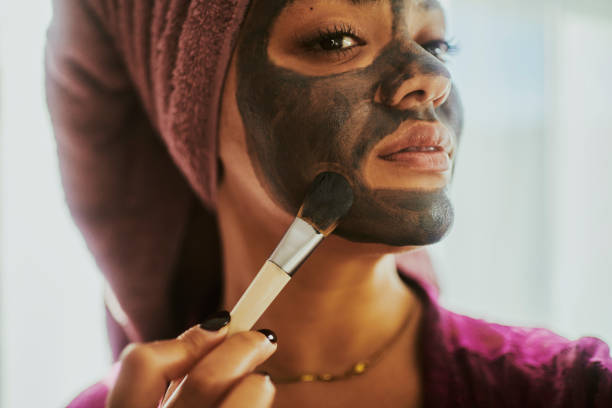Think of exfoliation as the deep-cleaning step in your skincare routine. While your daily cleanser helps to remove surface-level dirt, makeup, and oil, exfoliation works deeper to slough away dead skin cells that can pile up over time. This process helps reveal smoother, brighter, and healthier-looking skin.
Why Is Exfoliation Important?
Regular exfoliation helps unclog pores, reduces the chances of acne breakouts, and improves skin texture. It also enhances the absorption of serums and moisturizers, making your entire skincare routine more effective.
Key Tips for Effective Exfoliation
- Start Slow and Be Gentle
Begin by exfoliating 2-3 times a week, depending on your skin’s tolerance. Over-exfoliating can lead to irritation, dryness, or even damage to your skin barrier. - Exfoliate in the Evening
Exfoliating at night allows your skin to heal and rejuvenate while you sleep. This ensures your skin gets the most benefit without exposure to environmental pollutants or UV rays. - Follow Up with Hydration
After exfoliating, always apply a hydrating moisturizer to restore moisture and maintain the skin’s natural barrier. This step is crucial to prevent dryness or irritation after removing dead skin cells. - Protect with Sunscreen
Exfoliation can make your skin more sensitive to the sun. Always apply a broad-spectrum sunscreen during the day to shield your skin from harmful UV rays and prevent further damage.
How to Choose the Right Exfoliator for Your Skin
- Physical Exfoliators: These contain small granules or scrubs that physically remove dead skin cells. They’re best for non-sensitive skin types but should be applied gently with fingertips (not brushes) to prevent micro-tears.
- Chemical Exfoliators: These use ingredients like AHAs (Alpha Hydroxy Acids) or BHAs (Beta Hydroxy Acids) to dissolve dead skin cells.
- BHAs: Ideal for acne-prone skin as they penetrate deep into the pores to clear oil and debris.
- AHAs: Great for reducing fine lines and improving overall skin tone by removing surface-level dead skin.
Exfoliation Tips for Acne-Prone Skin
If you struggle with acne, opt for a chemical exfoliator with salicylic acid (a BHA). It helps reduce inflammation, unclog pores, and prevent breakouts. Be consistent but gentle—your skin needs time to adapt to new treatments.
A Balanced Approach to Exfoliation
While exfoliation is an essential step in achieving glowing skin, overdoing it can do more harm than good. Pay attention to how your skin reacts and adjust your routine as needed. If you’re unsure, consult a dermatologist to find the best method for your skin type.
For more tips:
Subscribe on YouTube: Diana Lily Acne Free Club
Follow on Facebook: Acne Free Club
Follow on Instagram: @dianalily_acnefreeclub
Your acne-free skin journey starts now! 🌟

